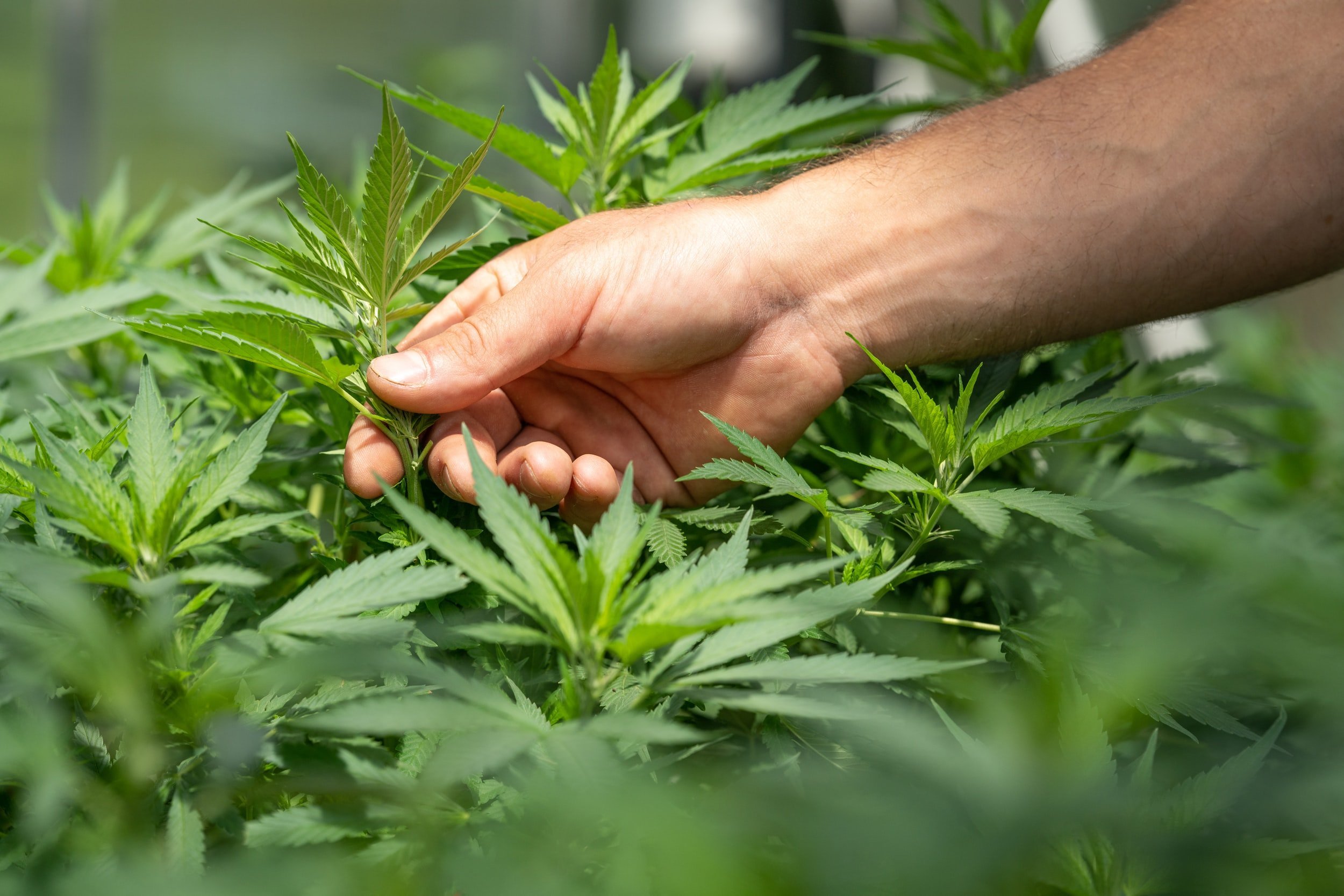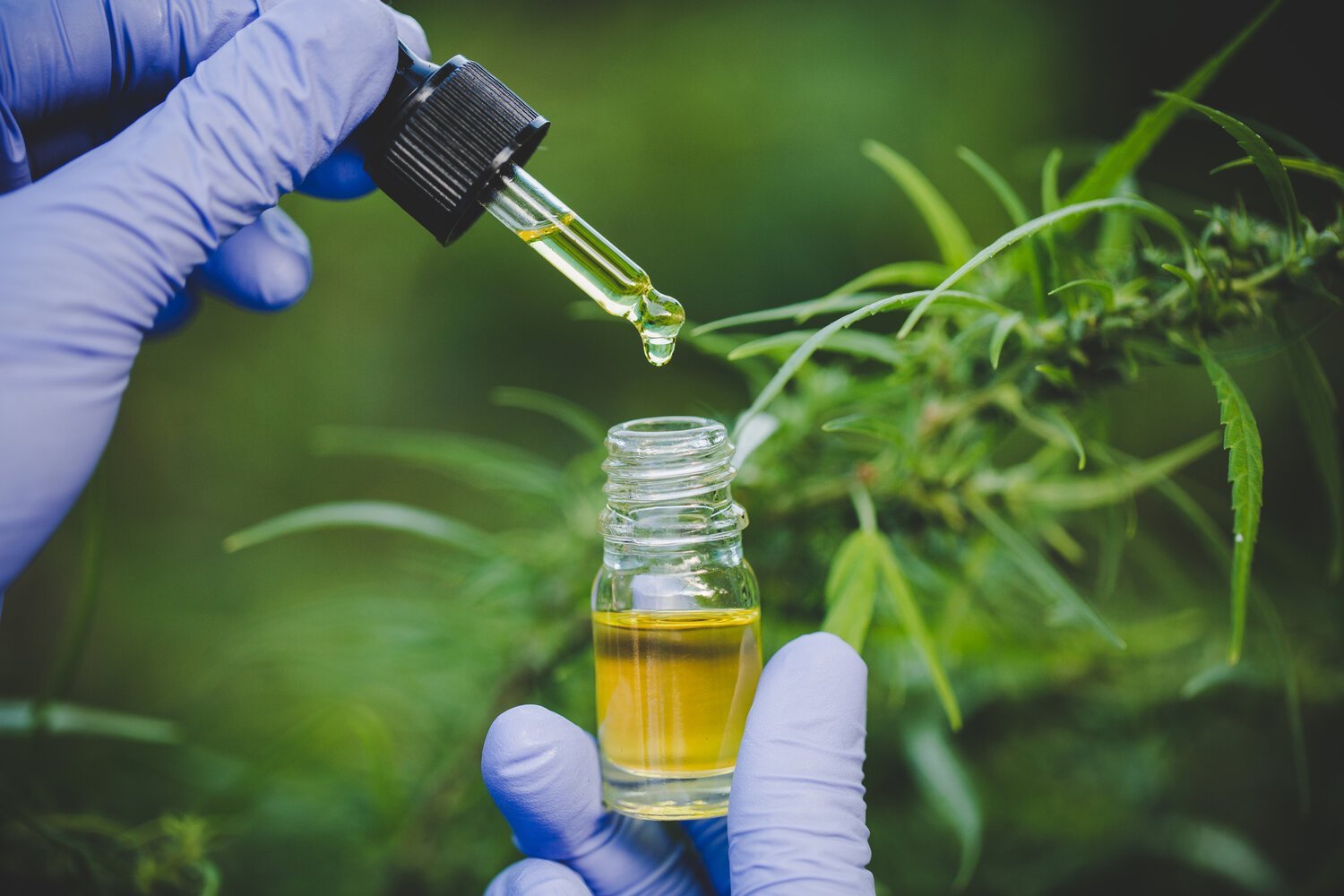Cannabis (Marijuana) and Concussion
If you live where marijuana is legal, dispensaries have a wide range of products with a various ratios of CBD to THC.
There are medical benefits from THC as well as CBD (see Cannabis & CBD Research) and scientific studies show that CBD and THC enhance each other's therapeutic effects.
Please read our Cannabis Health & Safety page. There are numerous contraindications to be aware of regarding cannabis, or marijuana, because of the THC content. Contraindications mean that there are circumstances when marijuana could be detrimental. Additionally, people with brain injuries may be more vulnerable to substance abuse, including abuse of marijuana.
There appears to be a consensus among researchers that cannabidiol (CBD) is relatively benign. If you want to purchase CBD, which contains no more than 0.3% tetrahydrocannabinol (THC), see our page on CBD Products.
Potential advantages of cannabis over CBD products
Purity and accurate labeling: In this states where marijuana is legal (recreationally or medically) the products are tested for purity (tested for molds, bacteria, pesticides, heavy metals, E.coli, etc) and are labeled accurately for potency and the ratio of CBD to THC. Labels will also show which chemicals are used for extraction (you can select the safe ones, see Safety Issues, below) and whether the plant was grown without pesticides.
.THC has neuroprotective effects on the brain, see CBD Research. Additionally, CBD and THC have a synergistic action that enhances the curative properties of both compounds.
Use different CBD:THC ratios throughout the day, for example, 20:1 ratio for daytime and 2:1 before bed, as THC helps with sleep.
Cannabidiol (CBD) and Tetrahydrocannabinol (THC) are both components of marijuana, but growers will cultivate strains high in CBD and low in THC, which is the element that produces the "high".
You can purchase products with CBD:THC ratios ranging from 50:1, 20:1, 10:1, 5:1, 2:1, and 1:1. Virtually none of these ratios will be psychoactive.
Secondary cannabinoids and medical terpenes extracted from the marijuana plant interact with CBD and THC to enhance medical benefits.
A wide range of products types is available such as water or alcohol-based tinctures, serums, mints, vapes, and edibles.
Inhalation vs edible products
Inhalation vs edible products have different time frames in which they affect the body. "Inhalation is good for treating acute symptoms that require immediate attention; the effects can be felt within a minute or two and typically last for a couple of hours. The effects of orally administered CBD-rich cannabis oil can last for four hours or more, but the onset of effects is much slower (30-90 minutes) than inhalation."
Tinctures are versatile and are often available in a wide range of CBD:THC ratios. Place drops under the tongue and hold for a few seconds before swallowing. It takes over an hour for the full effects to be felt.
Oils (such as RSO) are higher potency. They often come in syringes intended to refill vape cartridges but can be used instead as an edible which creates a longer lasting effect.
Mints are a good option for during the day when you need a portable and discreet option. We put the mints in an empty Altoid can for discretion. This is, however, an expensive option. Be sure that you are purchasing a high a high CBD mint.
Vapes allow you to inhale the product, so the CBD/THC gets into your system within minutes. You buy the battery (about $20) which looks like the bottom of a ballpoint pen and usually is rechargeable via USB. Then you purchase a cartridge with the marijuana product which screws into the vape battery. A good dispensary will have several options of higher CBD to low THC ratios.
Safety issues and dosing
Look for these indicators that the product is safe:
Grown without pesticides: Look for labels that say grown without synthetic pesticides. Ideally, the product is from marijuana grown on a single farm. Some oil and tincture products are made from marijuana grown on multiple farms, some of which may use pesticides.
Clear Labels: Look for labels showing the quantity and ratio of CBD and THC per dose, a manufacturing date and batch number (for quality control).
Lab Testing: Look for products that are tested for consistency, and verified as free of mold, bacteria, pesticides, solvent residues, and other contaminants.
Quality Ingredients: Select products with quality ingredients. No corn syrup, GMOs, transfats, and artificial additives.
Safe Extraction: Avoid products extracted with toxic solvents like BHO, propane, hexane or other hydrocarbons. Solvent residues are especially dangerous for immune-compromised patients. Look for products that entail a safer method of extraction like supercritical CO2.
(Thank you to Project CBD for some of the information above).
What is the right dose for you?
Using CBD from marijuana is a form of personalized medicine, so you will need to experiment to find which ratio of CBD and THC works for you, as well as what dose works for you. ProjectCBD has a page about Cannabis Dosing and discusses CBD:THC rations on their page CBD User's Manual. We've also found that the people working at the marijuana dispensaries typically are well trained and can be helpful in choosing products and discussing doses.
Medical marijuana laws and finding a doctor
Find a medical marijuana doctor
If you would like to work with a doctor for medical marijuana treatment, one way to locate a doctor is to use the MarijuanaDoctors.com search tool.
The mission statement for MarijuanaDoctors.com is to be a "trusted gateway for patients searching for medical marijuana treatment in legal medical marijuana states." The website doesn't address recreational marijuana laws.
The website lists medical marijuana laws for each state and who qualifies for medical marijuana. The website is helpful as it spells out the steps to get a medical marijuana card in each state - and in some of the states, it is a difficult, expensive process. If this is the case where you live, and you don't have recreational marijuana in your state, you may want to shop online for CBD from hemp, also called CBD oil.
Medical marijuana, recreational marijuana, or CBD from hemp (CBD oil)?
If you live in a state that has both legalized recreational marijuana and medical marijuana, you will want to do some additional investigating into whether to sign-up for medical marijuana or just buy recreational marijuana. In Washington State, for example, there is virtually no benefit to signing up for a medical marijuana card, as medical marijuana dispensaries have all but disappeared after recreational marijuana was legalized. In contrast, in California, there are significant benefits to having a medical marijuana card, including lower taxes and the availability of a wider range of products at medical marijuana dispensaries.
If you are making use of marijuana for a minor, then medical marijuana is the course to take, since recreational marijuana is for 21 years or older. For a minor, you may also want to consider going online and purchasing CBD from hemp (commonly referred to as CBD oil).
See our page CBD from Hemp or Marijuana for additional issues to consider.
Legal issues: CBD from marijuana
Wikipedia has an excellent summary of worldwide recreational cannabis laws here.
Congratulations to Canada for becoming the second nation in the world to legalize marijuana! The first nation to legalize marijuana was Uruguay.
In the United States, at the state level, recreational cannabis (marijuana) is currently legal in 9 states (Alaska, California, Colorado, Maine, Massachusetts, Nevada, Oregon, Vermont, and Washington) as well as the District of Columbia. It is decriminalized in an additional 14 states plus the U.S. Virgin Islands. Wikipedia has a chart of Cannabis laws by state here.
Medical marijuana is legal in 31 states, the District of Columbia, and the territories of Guam and Puerto Rico. "Fifteen other states have laws that limit THC content, for the purpose of allowing access to products that are rich in cannabidiol (CBD), a non-psychoactive component of cannabis." This Wikipedia article has detailed information about the laws in each state.
Michigan, and New Jersey are trying to legalize marijuana in 2018.
We recommend Marijuana Moment for the most up-to-date information about marijuana legislation.
See our additional pages on CBD for concussion treatment
Cannabis 101: What it is, what it does, how it’s helpful
Cannabis & CBD Research
CBD products from Hemp
Cannabis (Marijuana) and Concussions
The NFL, Concussions, and CBD
Veterans, Concussions, and CBD

















In 2021, the NFL offered an opportunity to researchers to examine possible treatments for pain in NFL athletes. An article written for CBC News indicates that the NFL awarded over $500,000 to a study led by Patrick Neary, a professor and exercise physiologist at the University of Regina, a public university in Canada.